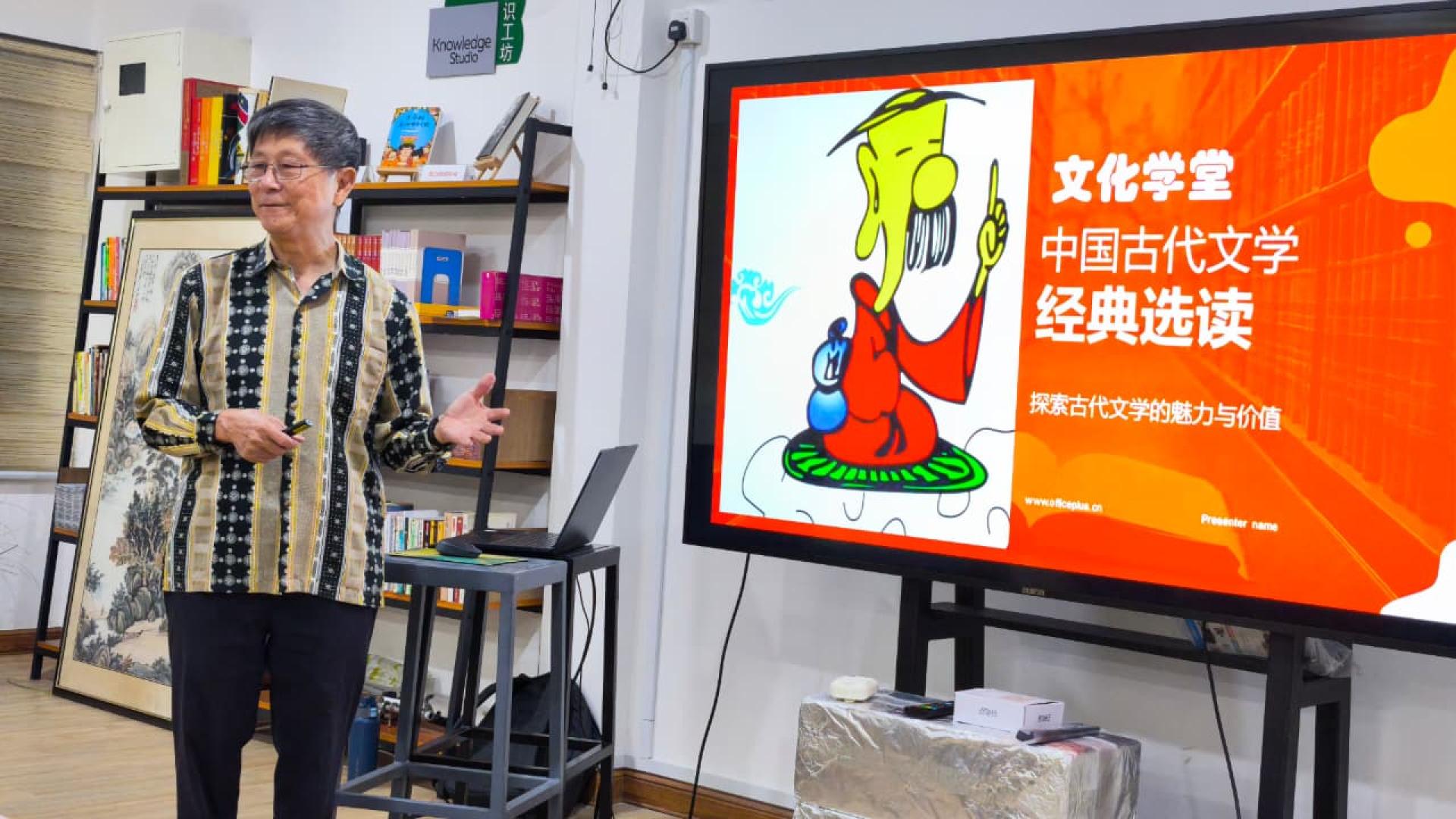(Seremban, 7th) The Jide Care Association recently held a cultural lecture session, hosted and lectured by Shen Renxiang. The topics covered included an analysis of the character "看" (to look) from Shuowen Jiezi and an overview of the history of the Ming dynasty, supplemented by a selected reading from the first chapter of the classic "Tao Te Ching". The atmosphere at the event was lively.
Shen Renxiang focused on the character “看” (to look), starting from related characters such as 视 (look), 见 (see), 观 (observe), 察 (inspect), 览 (browse), 望 (gaze), 眺 (look into the distance), 瞻 (look up), and 瞩 (fix gaze), explaining in depth the subtle differences among these words in terms of direction, emotional tone, and degree, guiding attendees to appreciate the rich connotations and cultural imagery of Chinese characters.
He also explored the rise and fall of the Ming dynasty from a historical perspective, describing Zhu Yuanzhang’s rise to power, the founding of the Ming dynasty, and the implementation of the “Hongwu Reign Governance.” Shen also traced the historical context of Zhu Di’s usurpation during the Jingnan Campaign, the move of the capital to Beijing, and the start of the “Yongle Prosperous Age.” The lecture also reviewed Ming dynasty’s centralized political system, economic prosperity, and cultural flourishing, highlighting the historical status of literary masterpieces such as "Romance of the Three Kingdoms," "Water Margin," "Journey to the West," as well as Wang Yangming's philosophy of mind.
Shen Renxiang further analyzed the causes of late Ming political corruption, intensifying factional strife, and the rise of peasant revolts, pointing out the historical trajectory of the Ming dynasty's decline, providing lessons for governance in later generations.
The cultural lecture session concluded with a selected reading of the first chapter of the "Tao Te Ching." Shen Renxiang expounded on the philosophy of "The Dao that can be spoken is not the eternal Dao," emphasizing the transcendence and practicability of the "Dao," advocating observing phenomena through "desire," seeking the essence through "desirelessness," and experiencing the eternal Dao through the unity of knowledge and action.
